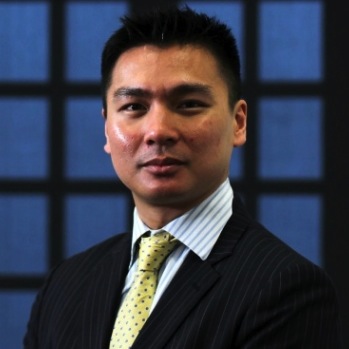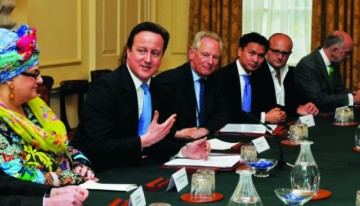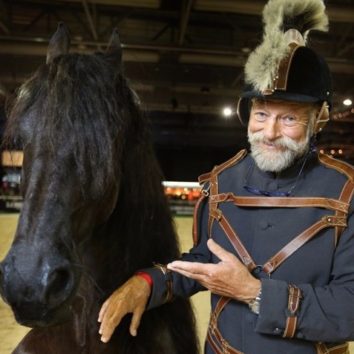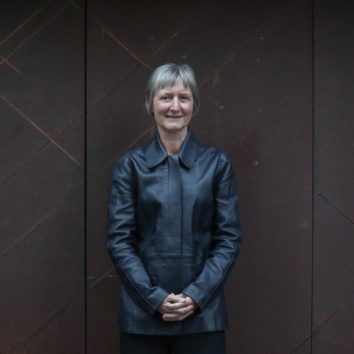
The rising son
— April 28, 2013Born to Hong Kong parents, Nathanael Wei is the youngest member of Britain’s House of Lords.

He’s the most senior ethnic Chinese politician in the European Union and the youngest member of Britain’s House of Lords, and when he visits, he hobnobs with the great and the good of Hong Kong; but you’ve probably never heard of him.
Lord Wei – or Nathanael Wei Ming-yan – tends to flit in and out of this city. He’s made two trips so far this year and given his parents are Hongkongers, born and bred, it’s surprising how little we know about him. It’s not as though there are many Chinese peers in the House of Lords.
In fact, there have been just three – and it’s fitting that Wei is the third, given he has a penchant, as I shall discover, for speaking in threes. Baroness Dunn (of Hong Kong Island, and of Knightsbridge) was the first Chinese to be made a life peer, in 1990. She wielded considerable power in business and government in Hong Kong in her time. And then came the late Singaporean-born doctor Michael Chew Koon Chan, who made his mark in Liverpool as a physician and, in 2001, was made Baron Chan of Oxton (in the County of Merseyside), a “people’s peer” (see sidebar), for his work with minorities and in health care. And Lord Wei? The name draws blank looks from most in his parents’ home city.
He may have been born in Britain, but Wei is fiercely proud of his Chinese heritage. In town this month, the 36-year-old social entrepreneur found time to address an audience at the Asia Society, in Admiralty, and began his talk by revealing that his grandfather came from the village next to that of Sun Yat-sen, near Xiangshan (now Zhongshan, which is just to the north of Macau and Zhuhai). On the run, the “founder of modern China” took refuge in the Wei family’s village and, when the imperial guard came looking for him, so the story goes, the villagers claimed he wasn’t there. Sun was thus able to escape into exile in Hong Kong and into the history books.
Says Wei: “Little did I know that two generations later, after being born and growing up in the UK, that I’d have the opportunity to follow a little bit in his footsteps.”
 This is a man not lacking in ambition or self-confidence. The topic of his speech at the Asia Society was “Building the Chinese Dream”, the very subject on which President Xi Jinping spoke in his inaugural address last month. But Wei is at pains to point out that he was ahead of the trend.
This is a man not lacking in ambition or self-confidence. The topic of his speech at the Asia Society was “Building the Chinese Dream”, the very subject on which President Xi Jinping spoke in his inaugural address last month. But Wei is at pains to point out that he was ahead of the trend.
“A couple of years ago, I gave a speech – one of my first in the region – at Tsinghua University, in Beijing, about the Chinese dream and the Chinese diaspora … Little did I know that a Tsinghua alumni – Xi Jinping – would start talking about this idea of the Chinese dream, and suddenly it’s really gone mainstream,” he says.
Wei’s parents – both Christians and teachers – met in Hong Kong but married and moved to Britain in the early 1970s. His father – who would become Reverend Edward Wei – trained as a pastor and went on to work as a missionary in Britain, for the Chinese Overseas Christian Mission. Their first child, Nathanael, was born in 1977, in Watford, just north of London. Two more followed; another boy, and a girl.
When Wei was seven, the family moved to Milton Keynes and he started at the local comprehensive, the Sir Frank Markham Community School.
“The catchment area for where we lived – from where the school drew most of its students – was where a lot of the former slums had been relocated from east London, so there was a high number of low-income families there – it made schooling quite interesting,” he says.
When it comes to humour and understatement, Wei is 100 per cent British. Drug use at the school was widespread and as one of the few Chinese students – and an especially studious one – he was bullied; but, he says, he encountered nothing he couldn’t handle. He focused on his studies and, with the help of a few supportive teachers, was accepted to Jesus College, Oxford University, to study modern languages.
“It was a lot of hard work because of the degree I did – French and German, with literature in both cases. They are each a full degree, so I was doing twice as much work. University was mainly study,” he says.
In 1999, he joined the management consulting firm McKinsey & Company, where he got to know Brett Wigdortz, who would found the educational charity Teach First in 2002. Wei worked with Wigdortz on the founding team – it was the first of many start-ups he’s been involved with and significantly shaped his career.
“I’ve lost count of the number of start-ups I’ve done. Depending on how direct or indirect – maybe about 15. About eight to 10 of them have scaled [grown in a structured way] to some degree and a number of them have scaled internationally,” he says.
Among the more prominent ventures he has been involved with are: Future Leaders, a charity that seeks to address educational disadvantage; the Shaftesbury Partnership, a social entrepreneurship company focused on housing, health care and unemployment; and The Challenge Network, which seeks to connect and inspire people to strengthen their communities.
“What I really love is setting up new social ventures, particularly ones that scale. I’m inspired by the Victorian social reformers who did similar things,” he says.
By 2010, Wei had caught the attention of British Prime Minister David Cameron, another Oxonian, who invited him to be an adviser to government on “the Big Society”, the new government’s flagship policy idea. The stated aim of the concept was to create a climate that empowered people and communities, thus building a “big society” that would assume some of the power hitherto invested in politicians and the state. It was right up Wei’s street – and the small matter of him not being a member of the Conservative Party was soon rectified.
It was only the day before he was due to be officially appointed the “Big Society tsar” that he learned that it would be an unpaid position – apparently the dirty business of remuneration hadn’t been considered until that point. But there was another bombshell on the day of the appointment – Cameron announced Wei would also be made a life peer, Baron Wei of Shoreditch, the district in the East End of London in which he had been living for some time.
“For me, entering government was a real learning curve,” says Wei. “The House of Lords was less of a challenge in terms of getting my head around it because, in many ways, parliament is like a big college; it’s like going back to university.”
Of the Lords, he adds: “Unless you’re the chief executive of a company or non-profit organisation, you don’t have a ‘pre-cooked role’.
“But learning how government works was quite interesting, and the media as well. In Britain we have a very vibrant media.”
That vibrant media made itself known to him a year into his Big Society job, when he announced he was cutting back on his hours. The Guardian columnist Lucy Mangan sniped, “The government’s ‘Big Society’ tsar, the man appointed to lead us all into a brave new feel-good world of voluntary work and civic service, has decided to cut back on the hours he devotes to this unpaid role in order to give himself enough time to earn a living and see his family.”
A few months later, Wei, who has two young sons with his wife, Cynthia, quit the role altogether. The timing of his resignation was embarrassing for Cameron, who only the day before had been propounding on his policy and the joys of volunteering.
As mentioned, Wei has a curious habit of speaking in threes – he’ll give three answers to a question, three points to a statement. He’s spent some time considering what he’s most passionate about: “Social enterprise and reform – that’s one. Obviously working with the Chinese community; East-West relations is another that is very natural because of being somebody from that background – in the Lords there are very few others in parliament who have that heritage, at the moment.” (There’s that understatement, again; he’s the only one.)
“And thirdly, cities – I see the potential of urban clusters for innovation and saying, ‘What can we do to really connect cities together?’,” he says.
On the matter of East-West relations, Wei adds: “Recently, I’ve spent quite a lot of time with people like [Chief Secretary] Carrie Lam [Cheng Yuet-ngor], who has done a lot of work in Hong Kong around social enterprise. And when I go to China, because I have a Chinese background, there is a trust in me, so I’ve been fortunate enough to have a number of really senior-level conversations on the UK, on education, on social issues,” he says, refusing to drop any names.
“There are real needs and issues that the leadership in China at city and central level are concerned about that, potentially, the experience of those like me can help with. At the moment I’m keen to listen and learn and say: ‘I’m here to help’. Often I work with people who are in business or who have foundations or who are running cities and they say, ‘Yeah, we have some needs, can we exchange knowledge?'”
In February, Wei led Britain’s All Party Parliamentary China Group on a week-long visit to Hong Kong. The programme included meetings with government officials, the legislature and the judiciary, and the group discussed trade and investment opportunities with the British Chamber of Commerce.
Presumably he shared with his Hong Kong hosts something of his Chinese dream?
Before he gets to that there are three – yes three – other dreams he’d like us to consider. It has not escaped his notice, he says, that every rising power over the past four centuries has had its dream. There has been the European dream – “Much of the retail dream [in Hong Kong] is built on French and other brands from the royal court, including the food which the royal courts pioneered and became kind of a global phenomenon”; the British dream – “We see that today through Rolls-Royce, Savile Row and, indeed, the British reinvented the British brand with the Great Exhibition [a culture/industry fair held in London in 1851], making the British monarchy think much more [in terms of] retail”; and the American dream, from the 1920s onwards.
Wei digresses to draw on a paradigm used by Sun, his hero and mentor, who divided human livelihood into four areas – housing, clothing, food and transport. Wei tags telecoms onto transport, as Sun no doubt would have done, but notes that in the case of the European, British and American dreams, goods and services have carried those dreams more than any written political doctrine or directive.
“When you want to connect to the American dream you drink Coca-Cola, you drive a Cadillac; or you aspire to. When you want to connect with the British dream it is the Savile Row and the Earl Grey tea,” he says. “So will there be a Chinese dream that is consciously created in the next few decades mainly through industry, businesses? And what will be the values that this dream conveys? Because the calligraphy and the Ming vases aren’t working anymore.”
Wei himself suggests three values – yes, you got that: three – that might underpin a Chinese dream: the environment, family and education. And he names a number of big companies, including Tencent Holdings and Hangzhou-based Wahaha Group, that he believes will help to foster those values.
“As we create together the Chinese dream – not just Chinese people but those who want to be part of this new phenomenon – over the next few decades, we can work together to shape a vision with the private sector, with those huge firms.”
If you haven’t spent much time in east London recently, it will probably have escaped your notice that there’s been much talk of Shoreditch becoming Britain’s Silicon Valley. And the government has sunk some serious cash into the idea. Hardly surprising then that Baron Wei of Shoreditch makes a number of references to the Californian tech hub. In particular, he is taken with the culture of employee share options.
“That means when they IPO their business they create thousands of millionaires, which in turn become angels who, in turn, start the next round of businesses, but also do a lot of philanthropy and also do a lot of mentoring and civic exchange,” he says.
And for him that’s what the Chinese dream should aspire to: millions of people becoming wealthy and stimulating the economy by spending, but contributing to philanthropy and social enterprise as well.
Wei seems well suited to flying the Union flag in this part of the world. Chinese heritage – tick. Great contacts – tick. And, although he’s only been learning Putonghua for just over a year, he’s picking it up fast.
“I speak in a lot of formal settings where you have to speak quite sophisticated Mandarin, so I’m quite concerned that when I start speaking [in public] it’s of a high quality from the outset. My tutors say it’s progressing well, so, hopefully, in a few years’ time I can start speaking publically more.”
Fluency in Putonghua – (a provisional) tick. That makes three good reasons why we’re likely to be seeing more of Lord Wei.
Original Link: SCMP
[PDF url=https://www.hongkongkate.com/wp-content/uploads/2014/07/050-SCMP-Lord-Wei-1.pdf]
[PDF url=https://www.hongkongkate.com/wp-content/uploads/2014/07/050-SCMP-Lord-Wei-2.pdf]
[PDF url=https://www.hongkongkate.com/wp-content/uploads/2014/07/050-SCMP-Lord-Wei-3.pdf]









